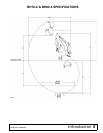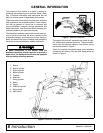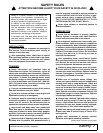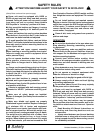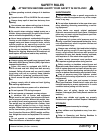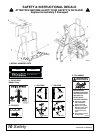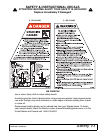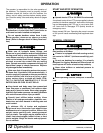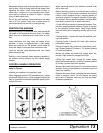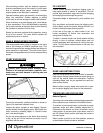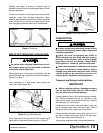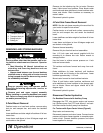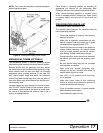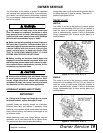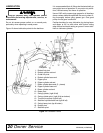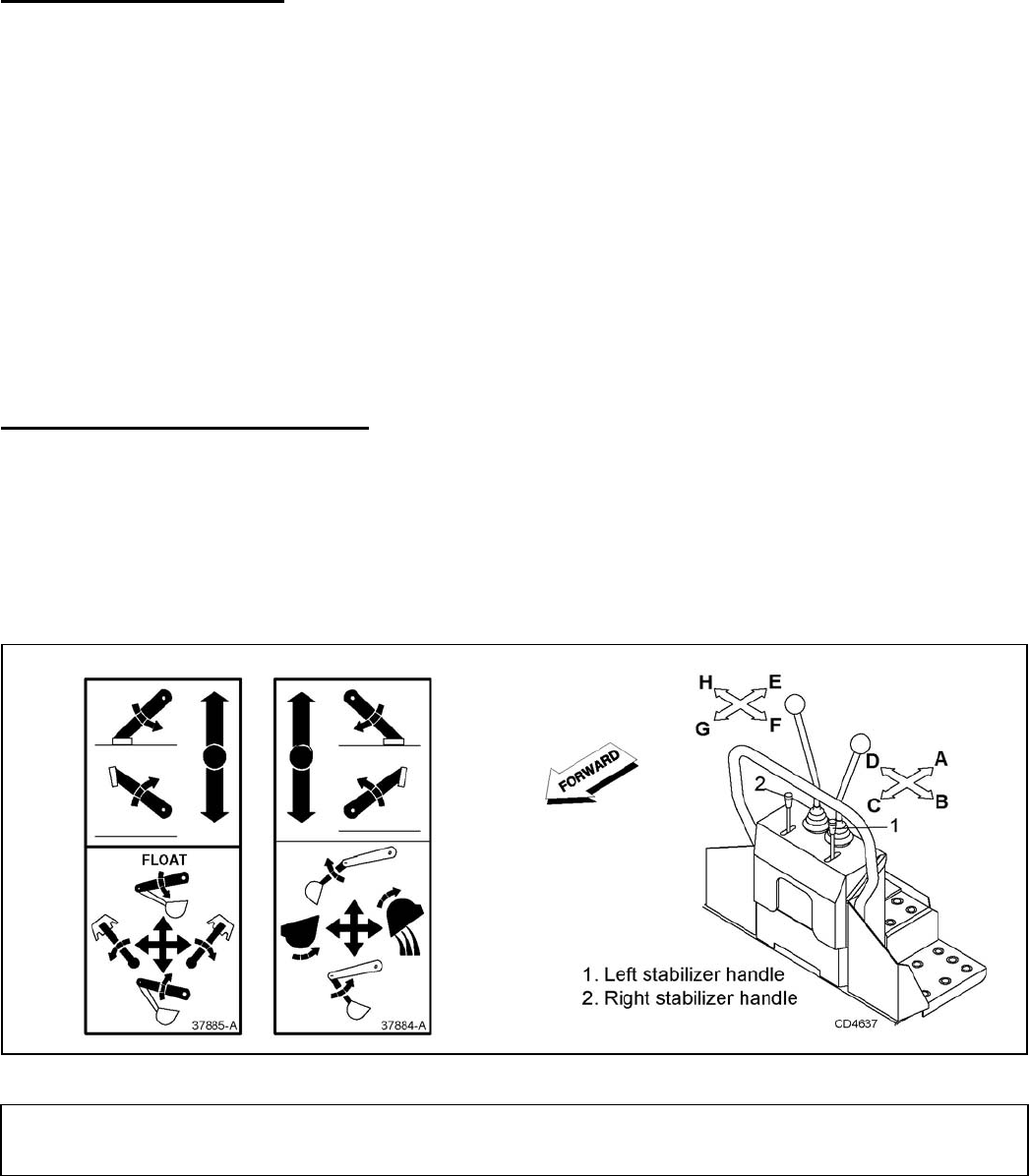
Operation 13
MAN0450 (10/28/2005)
Mechanical failures such as a hose rupture will cause a
load to drop. Lifting a heavy load with the dipper, then
operating the boom, could cause boom to drop. In
either case, if anyone is in the operating area (maxi-
mum reach of bucket) as shown in Figure 1, serious
injury or death could occur.
Do not dig with backhoe unless stabilizers are down
and on a firm surface. Stay clear of steep areas or
excavation banks that are soft or could give way
POSITION THE MACHINE
Before operating in an unfamiliar area, walk around the
full length of the proposed site and check for hidden
holes, drop-off or obstacles that could cause an acci-
dent.
Lower stabilizers until they carry the weight of the
backhoe. If tractor is equipped with a front loader,
place the bucket flat on the ground. Lower loader lift
arms until weight is removed from front tractor tires.
Level the machine using stabilizers and front loader
before starting to dig.
Stability is very important when operating backhoe in
the extreme swing positions as this causes weight
transfer.
CONTROL HANDLE OPERATION
Refer to Figure 2.
Assume your position in the operator's seat.
When engaging optional PTO-mounted pump, engine
rpm should always be low. Once engaged, engine rpm
may be increased to desirable operation speed (not to
exceed 540 rpm).
When becoming familiar with backhoe controls, start
with a lower rpm.
Before operating, perform a functional test by placing
control handles in their various positions and making
certain correct operation occurs, matching decals on
operator's console. Pay specific attention to float posi-
tion of boom. Do not operate backhoe if functions differ
from decal; serious injury or death could occur.
It is not difficult to become a successful operator. Con-
trol lever operating decals (shown in Figure 4) are next
to the operating control levers. Study these decals;
they will assist you in becoming familiar with the con-
trols.
Pushing handle 1 forward will lower left stabilizer; pull-
ing back raises it.
Pushing handle 2 forward will lower right stabilizer;
pulling back raises it.
Pulling left control back (toward A) raises boom; push-
ing it forward (toward C) lowers it. Full forward (toward
C) is the float position.
Moving left handle left (toward B) swings boom left;
moving it right (toward D) swings boom right.
Pulling right control back (toward E) moves dipper
down and toward operator; pushing it forward (toward
G) moves it up and away from operator.
Moving right handle left (toward F) curls bucket toward
operator; moving it right (toward H) extends bucket out
away from operator.
Operate the control levers, swinging the boom several
times to practice control. Do not operate the swing
more than 45 degrees each way the first few times.
Gradually increase arc.
Figure 2. Operator’s Controls (Typical View)



